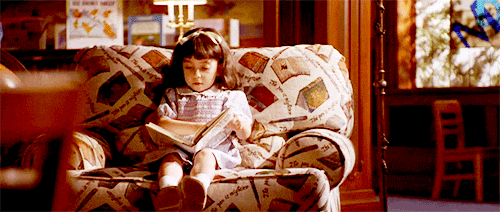In recent years, books with the word ‘girl’ in the title have gained large amounts of attention. According to Emma Oulton of Bustle.com, “Novels centered on women are so in demand right now that the first and third most-searched books on Goodreads in June were about women: the already infamous ‘The Girl on the Train’, and the sensational ‘Luckiest Girl Alive’, both with their complex leading women ready to tear apart female stereotypes.” There’s also “The Girl with the Dragon Tattoo” by Stieg Larsson, which was turned into a movie in 2005; “Gone Girl” by Gillian Flynn, which was turned into a movie in 2014; and more recently, “The Boston Girl” by Anita Diamant, which should be turned into a movie ASAP. Oh, and let’s not forget “The Girl with the Lower Back Tattoo” by Amy Schumer.
So, why is this a trend? Besides, perhaps, “The Boston Girl,” in which the main character actually is a young girl for a significant portion of the novel, most of the main characters in these “girl novels” are grown women. You may be thinking: what’s the big deal? Women and girls are the same thing! Well, not exactly. The word “girl” implies niavity, innocence and youth. I would expect to see this word in the title of a coming-of-age story, but instead I’m seeing it in thrillers and mystery novels. But, maybe that’s where the irony comes in. For example, Amy Dunne is the opposite of an innocent girl, though the first part of Flynn’s novel may lead you to think otherwise. By the end, however, we learn that Amy Dunne is an evil, conniving and brilliant sociopath who is not to be tempered with. We see the same kind of dramatic turn of events in “Luckiest Girl Alive” and “The Girl with the Dragon Tattoo.”
There is something jarring about reading a story that starts with a woman who obtains girl-like qualities who turns out to be incredibly dangerous and intelligent. It makes me wonder why “The Hunger Games” wasn’t called “The Hungry Girl.” According to Alexandra Alter in her New York Times article “This Summer, Girls in Titles, Girls in Perils,” “It’s hardly a spoiler to note that in each of these novels, bad things happen to girls. Occasionally, and refreshingly, girls also do bad things to other people.” These female-dominated stories really are refreshing for all audience, both experienced and inexperienced. However, t is no doubt that there is something about the word “girl” in a book title that specifically draws the attention of female readers. I’m not sure if “woman” would work the same way. For instance, if “Girl with the Dragon Tattoo” was instead titled, “Woman with the Dragon Tattoo,” it seems that the word “woman” implies experience, as if the climax of the story has already happened– as if there is no growing-up to happen. “Girl,” on the other hand, seems to imply an advancement in both the plot and in character development.






















